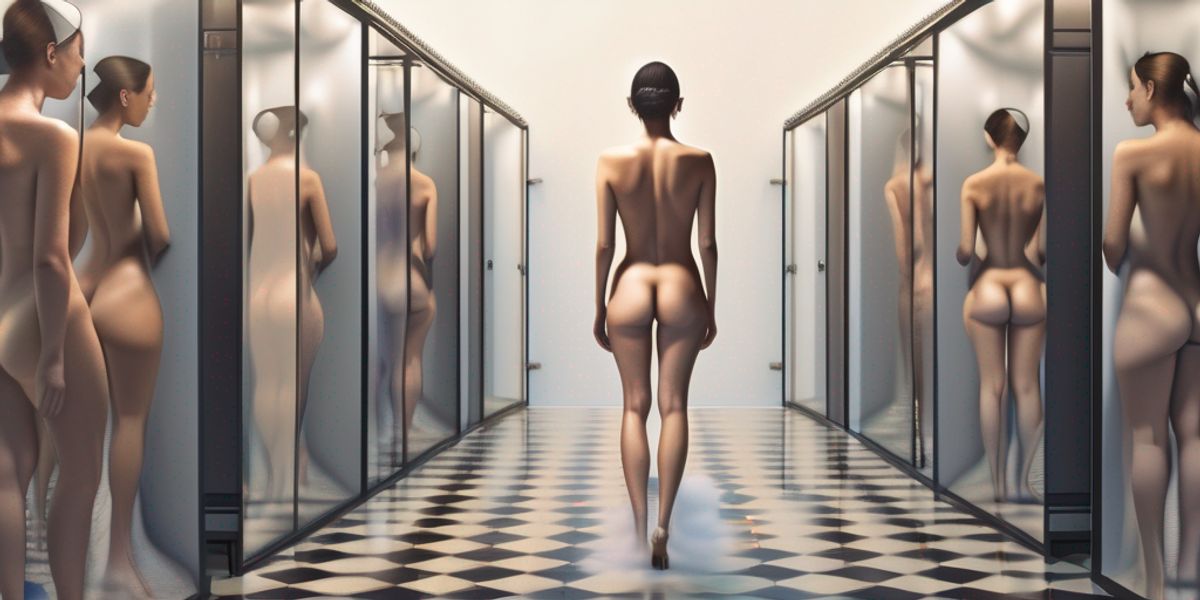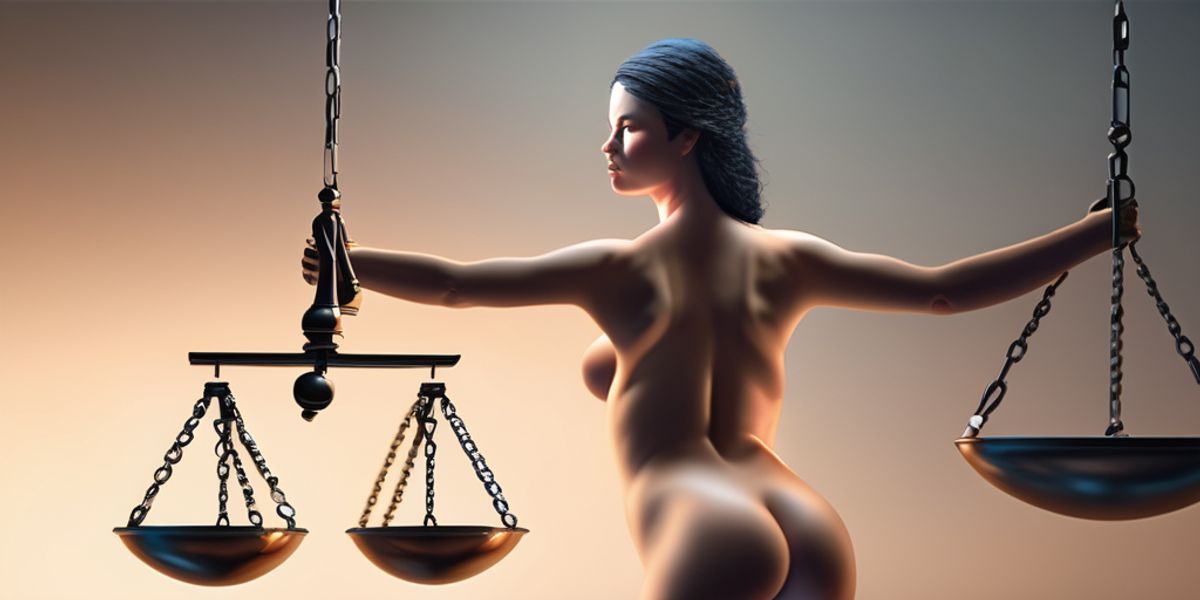
Navigating the Ethical Quagmire of Celebrity Nude Fakes
In the rapidly evolving digital landscape, the emergence of AI-generated nude images, particularly of celebrities, presents a complex ethical, legal, and psychological quagmire. The technology, while impressive, raises significant concerns about consent, privacy, and the broader implications for society. This article explores the multifaceted issues surrounding celebrity nude fakes, examining the technology behind them, the legal and ethical dilemmas they pose, and the broader impact on individuals and societal norms.
Key Takeaways
- Advanced AI technologies like Nudify.Online use deep learning to create highly realistic nude images of individuals without their consent.
- There is a significant legal grey area concerning the distribution and creation of AI-generated nude content, leading to complex legal battles.
- The lack of consent in creating such images poses profound ethical challenges, impacting the dignity and privacy of individuals.
- The psychological ramifications on both the victims and society are profound, influencing perceptions and exacerbating mental health issues.
- Emerging technological countermeasures and educational initiatives are crucial in combating the misuse of AI in creating fake nude images.
Understanding the Technology Behind AI-Generated Nude Images

How AI is Used to Create Nude Fakes
AI technologies, particularly those involving machine learning and image processing, have enabled the creation of highly realistic nude images of individuals without their consent. The process typically involves sourcing public images of the person, then using AI to alter these images to create the appearance of nudity. This manipulation raises significant ethical and legal concerns.
The Role of Deep Learning and Neural Networks
Deep learning and neural networks are at the core of these technologies. They analyze vast amounts of data to learn and replicate patterns in images, making it possible to generate convincing fake images with minimal input. These systems require substantial computational power and datasets to train effectively, often sourced from the internet without clear ethical guidelines.
Limitations and Accuracy of Current Technologies
While the technology has advanced, it is not without its flaws. The accuracy of AI-generated images can vary, leading to potential misidentification and misrepresentation. Moreover, the technology’s limitations can sometimes be seen in the less convincing fakes, where the AI fails to accurately render realistic human features or clothing textures.
Legal Implications of Distributing AI-Generated Nude Content

Current Laws Governing Deepfake Content
The legal landscape surrounding AI-generated nude images is complex and varies by jurisdiction. Most countries have laws that indirectly address the creation and distribution of such content, often through regulations against non-consensual pornography. However, explicit laws targeting deepfakes specifically are still emerging. For instance, in the United States, several states have enacted laws that criminalize the distribution of digitally created fake nude images without consent.
Privacy Rights and Violations
Privacy concerns are paramount when it comes to AI-generated nude images. Victims often suffer severe violations of their personal privacy, leading to psychological and emotional distress. The unauthorized use of one’s likeness to create fake nude content can be seen as a direct invasion of privacy, which is protected under various national and international laws.
Case Studies: Legal Battles Over AI Nude Images
Several high-profile legal battles have highlighted the challenges and legal implications of distributing AI-generated nude content. For example, a new law in Indiana makes the distribution of AI-generated fake nude photos a crime, reflecting a growing trend towards stricter regulations. This legal response is a crucial step in addressing the misuse of AI technologies in creating and distributing non-consensual nude images.
Ethical Considerations in the Creation of Celebrity Nude Fakes

Consent and Its Complications
In the realm of AI-generated nude images, consent emerges as a pivotal issue. Platforms like Nudify.Online, which utilize sophisticated AI to digitally undress images, often operate without explicit permission from the individuals depicted. This raises significant ethical concerns about the violation of personal rights and autonomy.
The Impact on Victims
The creation of celebrity nude fakes can have devastating effects on the victims. The unauthorized use of one’s likeness can lead to emotional distress, reputational damage, and a sense of violation. The ease of spread on social media further exacerbates these impacts, making it difficult for victims to regain control over their digital identities.
Moral Responsibilities of Developers and Users
Developers and users of technologies like Nudify.Online bear a moral responsibility to consider the implications of their creations. It is crucial for developers to implement safeguards that prevent misuse and for users to critically assess the ethicality of their actions. Educating both parties about the potential harms and ethical considerations can help mitigate the negative consequences associated with these technologies.
The Psychological Impact on Society and Individuals

Effects on Public Perception of Celebrities
The widespread availability of AI-generated nude images can significantly alter how the public perceives celebrities. These manipulated images often spread rapidly across social media, potentially damaging reputations and altering public opinions. The distortion of celebrity images can lead to a pervasive distrust in media.
Consequences for Mental Health
Exposure to non-consensual intimate imagery, including AI-generated content, can have severe psychological effects on both the subjects of the images and the wider public. Victims may experience emotional distress, anxiety, and a sense of violation. Moreover, the broader societal acceptance of such practices can normalize harassment and exacerbate mental health issues across communities.
Societal Norms and the Influence of Fake Images
AI-generated nude images contribute to the shaping of societal norms regarding privacy and consent. As these images become more common, they challenge traditional notions of personal boundaries and respect. This shift can lead to a degradation of social values and an increase in voyeuristic behaviors among the public.
Technological Countermeasures and Solutions

Detection Tools for Fake Images
In response to the growing concern over AI-generated fake images, various detection tools have been developed. These tools utilize machine learning algorithms to analyze patterns and inconsistencies that are typically invisible to the human eye. The effectiveness of these tools is crucial in maintaining the integrity of digital media.
Advancements in Digital Rights Management
Digital Rights Management (DRM) systems have evolved to include features specifically designed to combat the unauthorized use of AI technologies in creating and distributing fake content. These systems can now trace and manage the distribution of digital content more effectively, safeguarding against the misuse of technology.
Educational Initiatives to Combat Misuse
To address the misuse of AI in creating deceptive images, educational initiatives have been launched globally. These programs aim to raise awareness about the ethical use of AI and the potential consequences of its misuse. By educating the public and technology users, we foster a more informed community capable of recognizing and rejecting fake content.
The Future of AI in Media Manipulation

Predictions for AI Developments
The trajectory of AI in media manipulation is poised for significant advancements. Expect more sophisticated algorithms that can generate not only images but also videos that are increasingly indistinguishable from real ones. This progression will likely blur the lines between reality and AI-generated content even further.
Potential Regulations and Ethical Guidelines
As AI technology evolves, so too does the need for robust regulations. Governments and international bodies may introduce more stringent laws to curb the misuse of AI in creating deceptive media. These regulations will aim to balance innovation with ethical considerations, ensuring that AI advancements do not come at the cost of personal privacy or societal trust.
Balancing Innovation with Ethical Use
The challenge lies in fostering innovation while ensuring ethical use of AI in media. Developers and users must work together to create a framework that promotes responsible AI use. This includes developing detection tools and educating the public about the nature of AI-generated content to prevent misinformation.
Conclusion
Navigating the ethical landscape surrounding celebrity nude fakes, such as those generated by advanced platforms like Nudify.Online, demands a nuanced understanding and robust legal frameworks. As technology continues to evolve, so too must our ethical standards and regulations to protect individuals’ rights and dignity. It is imperative for society, lawmakers, and technology developers to collaborate in creating and enforcing laws that address the privacy concerns and potential harms caused by these technologies. Only through proactive measures and ethical considerations can we hope to manage the complex implications of such digital creations.
Frequently Asked Questions
What technology is used to create AI-generated nude images?
AI-generated nude images are created using advanced deep learning and neural network technologies. These systems are trained on vast datasets to recognize and manipulate human images to generate realistic fakes.
Are there any legal consequences for distributing AI-generated nude content?
Yes, distributing AI-generated nude content can have legal consequences depending on the jurisdiction. It often involves violations of privacy rights and can lead to lawsuits and criminal charges.
What are the ethical issues with creating celebrity nude fakes?
Ethical issues include the lack of consent from the individuals depicted, the potential harm to the victim’s reputation and mental health, and the broader moral implications for society.
How do AI-generated nude images impact individuals and society?
These images can alter public perception of celebrities, damage reputations, and contribute to unrealistic body standards. They also pose risks to mental health and can perpetuate harmful societal norms.
What measures can be taken to detect and prevent the spread of fake nude images?
Technological countermeasures such as detection tools and digital rights management systems can help identify and prevent the spread of fake images. Educational initiatives can also raise awareness about the issues.
What is the future of AI in media manipulation?
The future of AI in media manipulation is likely to see further technological advancements, but also potential regulations and ethical guidelines to balance innovation with ethical use of the technology.



